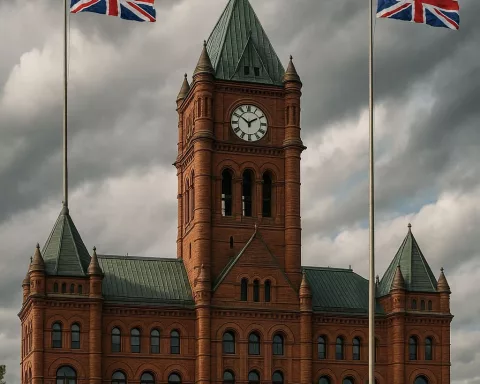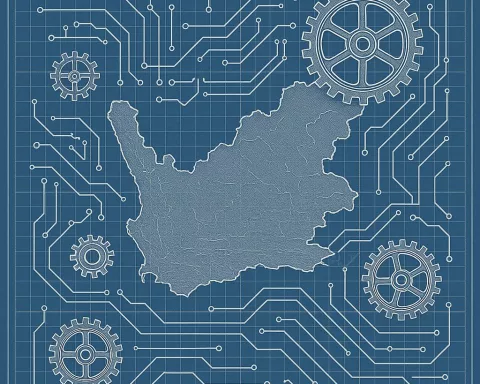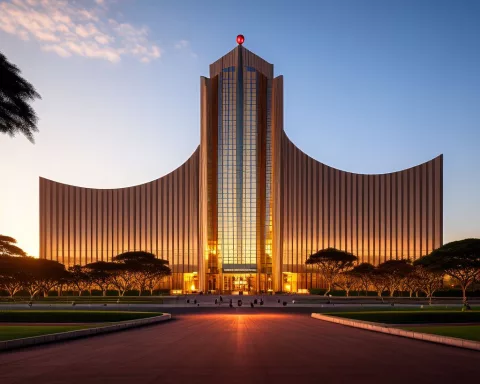South Africa’s 2023 Budget has stirred up a storm, especially with a new VAT hike that many believe unfairly hits the poor the hardest. This increase, which means everyone pays the same tax on basic goods, has sparked outrage and calls for action on social media, as citizens struggle with rising living costs. Political tension is high, with the main opposition party, the DA, declaring they won’t support the budget, putting the ANC in a tough spot. As the government faces mounting criticism and skepticism about its promises, South Africa finds itself at a crucial crossroads, where the outcome of this budget could reshape the political future of the nation.
What are the implications of South Africa’s VAT increase in the 2023 Budget?
The VAT increase in South Africa’s 2023 Budget is contentious, seen as regressive, disproportionately affecting the poor. It has sparked public outcry and political opposition, raising questions about government accountability and the effectiveness of proposed revenue use for essential services amidst economic struggles.
For the first time in three decades, South Africa’s Budget process has faced unprecedented hurdles. The divided Government of National Unity (GNU) has presented Finance Minister Enoch Godongwana with a host of complex challenges. His initial attempt to present the Budget in February disintegrated due to last-minute cabinet pushback. Unlike the historical dominance of the ANC, which allowed for seamless policy implementation, the current political dynamics demand negotiation and compromise, exposing the party’s weaknesses.
Breaking Down The VAT Hike
Under the new tax proposal, Godongwana has staunchly defended the controversial VAT increase. “This decision was not arrived at lightly. No Finance Minister relishes the idea of raising taxes, but it was the most viable option to prevent further spending cuts and maintain the social wage,” he declared. According to National Treasury, the only alternatives would have been hikes in corporate or personal income taxes, which could have stifled job creation and investment.
The new VAT arrangement means both a high-income earner and a low-income SASSA grant recipient will pay the same VAT amount on essential goods. This disparity has led many to view the tax as unfair and regressive, affecting the poor more acutely than the wealthy.
A Political Showdown: DA’s Rejection of the Budget
In a dramatic turn, just minutes before the Budget Speech, DA leader John Steenhuisen took to social media to announce, “Good afternoon, South Africa. The DA will not support the budget in its current form.” The DA’s opposition is rooted in the belief that any VAT increase disproportionately impacts the poor and working-class citizens. This stance has created a significant challenge for the ANC, which needs the support of at least 42 additional MPs to pass the Budget. With the EFF and MK Party also unlikely to back it, the battle is set to intensify.
Public Outcry: Social Media Erupts
The proposed VAT hike has triggered a wave of public outrage, especially on social media. Citizens have expressed their frustrations and called for collective action. One user, @Real_RIvolution, tweeted: “We unequivocally REJECT this 0.5% VAT hike. The streets are calling. I need to get my boots ready. We shall not allow thieves to punish the poor for their state looting.” Another user, @Fit_Mandisa, suggested: “Instead of increasing VAT, they should’ve considered trimming Parliament members—some of them are forever sleeping while serious issues are discussed.”
Households at Breaking Point
The timing of the VAT increase could not have been worse for many South Africans, who are already grappling with skyrocketing food and fuel prices, rising electricity costs, and economic stagnation. The added financial burden is pushing households closer to their breaking points. Many citizens feel that the government has turned a blind eye to their struggles, favoring fiscal policies that disproportionately harm the most vulnerable segments of society.
The Bigger Picture: Winners and Losers
While the National Treasury claims that the additional revenue from the VAT hike will fund essential services like health, education, and infrastructure, skepticism remains high. Many South Africans, citing past instances of government mismanagement and corruption, find it hard to trust these promises. In response to the outcry, the government has proposed several mitigating measures, but the public remains cautious, doubting the effectiveness of these promises.
Political Gamble: Will The Budget Pass?
With the DA’s outright rejection of the Budget, the ANC faces a formidable challenge. Without support from at least one opposition party, the Budget risks being blocked—a scenario unprecedented in South Africa’s democratic history. The ANC may have to engage in tough negotiations with parties like the EFF or the MK Party, each likely to demand significant concessions. This political gamble could potentially redefine governance in the country, pushing it towards a more collaborative and less autocratic framework.
Historical Context: Echoes of Past Struggles
South Africa’s current political landscape mirrors transformative periods in history, such as the aftermath of the French Revolution, which saw the rise of democratic ideals amid significant turmoil. The ongoing Budget debate echoes the existential struggles witnessed during artistic movements like Dadaism, which emerged as a reaction to the absurdities of their time. Both citizens and politicians are grappling with the contradictions between entrenched structures and emerging realities.
Governance and Economic Balancing Act
The unfolding budgetary crisis also brings to mind the complexities faced by post-colonial governments worldwide. Much like nations grappling with the early stages of independence, South Africa must find a balance between economic necessity and political stability. The VAT debate serves as a microcosm of broader issues, illustrating the tensions between development objectives and equitable governance.
Social and Economic Implications
The VAT increase highlights the need for South Africa to develop a more diversified revenue base. Relying heavily on consumption taxes places an undue burden on the poor, stressing the importance of a more progressive tax system. The public uproar also reveals a deeply engaged citizenry, unwilling to accept policies that exacerbate existing inequalities.
The Role of Media and Public Discourse
Social media has emerged as a powerful platform for political discourse, akin to the role of pamphlets during the Enlightenment. This democratization of communication channels enables individuals to express dissent and mobilize collective action, which could significantly influence political outcomes.
This year’s Budget process has been the most contentious in recent memory. The ANC can no longer govern unchallenged, and South Africans are experiencing a true multi-party democracy in action. While the VAT increase remains highly unpopular, the broader debate is a clear sign of a shifting political landscape—decisions are no longer made behind closed doors but are now negotiated in the public eye. The critical question remains: Will the Budget pass, or will South Africa face unprecedented political and economic uncertainty?
“`markdown
FAQ on South Africa’s 2023 Budget and VAT Increase
What is the main reason for the VAT hike in South Africa’s 2023 Budget?
The VAT hike in South Africa’s 2023 Budget is primarily aimed at preventing further spending cuts and maintaining the social wage. Finance Minister Enoch Godongwana stated that alternatives, such as increasing corporate or personal income taxes, could stifle job creation and investment. However, this increase has been criticized for disproportionately affecting low-income citizens.
How has the public reacted to the VAT increase?
The proposed VAT increase has sparked significant public outcry, particularly on social media platforms. Many citizens have expressed their frustrations, calling the tax unfair and regressive, as it impacts the poor more acutely than wealthier individuals. There have been calls for collective action to reject this tax hike, with users on social media highlighting the struggles faced by everyday South Africans.
What challenges is the ANC facing in passing the Budget?
The ANC is facing considerable challenges in passing the Budget, especially after the DA’s outright rejection. To pass the Budget, the ANC needs to secure support from at least 42 additional MPs, as support from other opposition parties like the EFF and MK Party is also unlikely. This situation has created a significant political dilemma, as the ANC may need to negotiate substantial concessions to gain the necessary support.
Why is the VAT increase considered regressive?
The VAT increase is considered regressive because it imposes the same tax rate on all consumers, regardless of income level. This means that both high-income earners and low-income SASSA grant recipients pay the same VAT amount on essential goods, disproportionately affecting lower-income individuals who spend a larger percentage of their income on such necessities.
What implications could this Budget have on South Africa’s political future?
The outcome of the 2023 Budget could significantly reshape South Africa’s political landscape. A failure to pass the Budget may lead to unprecedented political and economic uncertainty, while successful negotiations could foster a more collaborative governance approach. This situation reflects a critical moment in South Africa’s transition to a multi-party democracy, where public discourse and citizen engagement play vital roles in policy-making.
How does social media influence the political discourse surrounding the Budget?
Social media has become a powerful platform for political discourse, allowing citizens to voice their concerns and mobilize collective action against policies like the VAT increase. This democratization of communication resembles the role of pamphlets during the Enlightenment, facilitating widespread engagement and potentially influencing political outcomes by holding the government accountable.
“`












